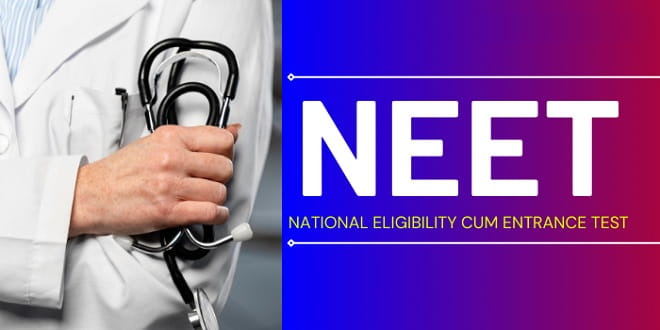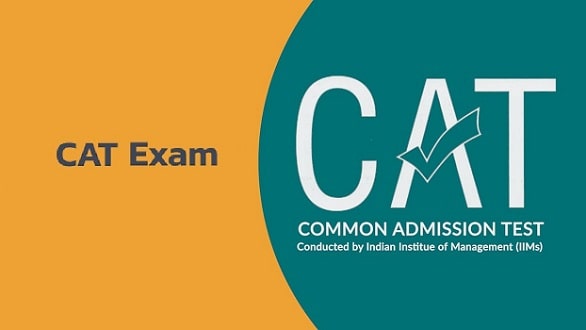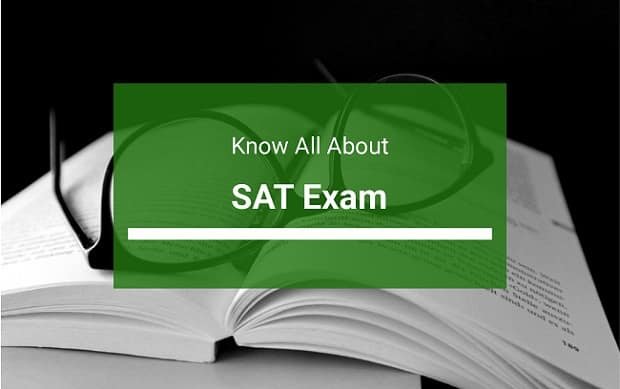In India, if you want to pursue engineering as a career and want to get admission to a Top-notch engineering college then it is mandatory to clear JEE examination. There are two stages of JEE, the first is JEE Main and the second is JEE Advanced. Both are national-level entrance exams, conducted every year across the country. Such national-level exams are overlooked by the government and supported by the institutions that are enrolled as government institutions. Some of the popular engineering institutions include IITs and NITs. Those who seek admission to public institutes must have to qualify for JEE Main first. After qualifying for JEE Main, you get a chance to crack JEE Advanced.
Both entrance exams are quite similar, but there are varying from each other in several aspects. Before pursuing this stream, candidates should have to know the difference between JEE Main and JEE Advanced. Here we have listed some aspects, that clearly show the difference between these examinations.
Difference Between JEE Main and JEE Advanced
Some aspects like eligibility, number of Attempts, number of papers, difficulty level, paper language, Mode of examination, and course curriculum will help to understand that these exams are inter-connected but have major differences.

JEE Main v/s JEE Advanced – Difference based on Eligibility Criteria
Eligibility for JEE Main
JEE Main is the primary stage to open doors for applicants who have a desire to get admission to the reputed engineering college. JEE Main is the Undergraduate level entrance exam. The following eligibility criteria are mentioned below-
- Qualifying Examination: The candidates should have passed a 10+2 or equivalent exam from any recognized university with required scores. Candidates who wait for the final board exam result are also eligible for the JEE Main applications.
- Combination of Topics and Subjects for admission into top-notch engineering institutions: Candidates should have passed the 12th class with the following subjects: B.E. or B.Tech – Physics and Mathematics.
- Candidates who possess any of the following (Biology, Chemistry, Technical Vocational Subject, and Biotechnology) are also eligible to appear in JEE Main examinations.
- The next path is B.Arch, if you can read the following subject (Mathematics, Physics, and Chemistry), then you are eligible for the JEE Main examination.
- Age Limit: There is no specific age requirement for JEE Main examination. Students who have passed their 12th class with minimum aggregate and with above mention subjects are eligible for the JEE Main.
Eligibility for JEE Advanced
The next step is JEE Advanced, it is a high-level plus a national level entrance exam. Every year thousands of candidates will try their luck to crack the exam. The difficulty level is high as compared to JEE Main. Shortlisted candidates of JEE Main will get a chance to sit on the JEE Advanced. The eligibility criteria for JEE Advanced as follow-
- Qualifying Examination: The qualifying exam for JEE Advanced is JEE Main. To get an appearance for JEE Advanced, the students have to qualify for JEE Mains and secure positions among rank holders. The eligibility criteria may differ for the advanced examinations. As per the regulatory bodies of JEE, the students should follow the procedure of examination.
- Age Criteria: Those who belong to the General Category, should be born on or after 1 October in the year 1996. An applicant who belongs to Schedule Category/ Schedule Tribe or PwD will have to get relaxations as per the procedure of examinations. The minimum relaxation is 5 years. For more details, you can check the official website of the examination.
JEE Main v/s JEE Advanced – Difference based on Number of Attempts
Students will get a few chances to crack the national-level entrance exam. When it comes to JEE exam, the number of attempts is divided into two categories. The following category is mention below-
Number of Attempts for JEE Main:
Candidates will get a maximum of 3 attempts to clear JEE Main. The JEE Main examination involves two sessions each session consists of a total of 3 attempts which are spread over 1 year. In simple words, candidates have to attempt both sessions in the same year.
Number of Attempts for JEE Advanced:
On the other JEE Advanced consists two times. Overall, students can attempt JEE advanced maximum in 2 successive years.
JEE Main v/s JEE Advanced – Difference based on Mode of Language
Generally, every national level entrance exam offers two modes of language, Hindi and English But in JEE the mode of language is quite similar. The mode of language for both as per the following-
Mode of Language for JEE Main:
Hindi and English language will be offered to candidates. Apart from these two languages, Gujarati is also available for candidates.
Mode of Language for JEE Advanced:
In JEE Advanced, there are only two languages available; Hindi and English.
JEE Main v/s JEE Advanced – Difference based on Authorities
Conducting Authority of JEE Main:
JEE Main is conducted by the NTA (National Testing Agency)
Conducting Authority of JEE Advanced:
The Indian Institute of Technology is conducting the authority of JEE Advanced examination. The conducting authority of JEE Advanced is formerly known as IIT (Delhi).
JEE Main v/s JEE Advanced – Difference based on Pattern of Exam
From a per exam perspective, there is a huge difference in both examinations. The following difference as per follow
Exam Pattern of JEE Main:
- Paper-1 Tech/ B.E.
- Exam Mode – CBT
- Subjects – Chemistry, Physics, and Mathematics
- Questions types – 60 Objective Questions including four options each with 1 correct option and 15 Questions for which answer is a Numeric Value.
- Medium – Hindi & English (In all Centre Cities), Hindi, Gujarati, and English (In Daman and Diu, Dadar and Nagar Haveli).
- Exam Duration – 3 Hours
- Total Marks – 300 Marks
- Marking for MCQs questions: + 4 for each correct answer, negative marking ( -1 for each wrong answer), Un-attempted questions will not be counted & marked.
- Marking for Non-MCQs questions: +4 for the correct question and there is no negative marking for non-attempted and wrong ones.
- Paper-2 Arch
- Exam Mode- CBT ( Mathematic and Aptitude)
- Subjects – Mathematics, Drawing, and Aptitude Test
- Questions Types- 20 MCQs of Maths, 5 Questions of Numerical Value, 50 MCQS of Aptitude, and 2 Questions of Drawing.
- Medium- Hindi, and English for All Centre Cities, Gujarati, Hindi, and English for Centre Cities of Gujarat, Daman, and Diu, Dadar, and Nagar Haveli.
- Exam Duration- 3 Hours
- Total Marks- 300 Marks
- Marking for MCQs questions: +4 for each correct answer, negative marking ( -1 for each wrong answer, Un-attempted will not be counted and marked.
- Marking for Non-MCQs questions: +4 for each correct answer, there is no negative marking for unattempted and incorrect answers.
- Marking for Drawing Test: 100 Marks is divided into 2 questions.
- Paper-3 Planning
- Exam Mode- CBT
- Subjects- Aptitude Test, Mathematics & Planning Based MCQs Type
- Questions Type- 20 MCQs of Maths, 5 Questions of Numerical Value, 50 MCQs of Aptitude, Planning Based 25 MCQs questions.
- Medium- Hindi, and English (all Centre Cities); Gujarati, English, and Hindi (Daman and Diu, Nagar and Dadar) Centre Cities in Gujarat.
- Exam Duration- 3 Hours
- Total Marks- 400 Marks
- Marking for MCQs questions: +4 for each correct answer, -1 for an incorrect answer, and unattempted questions will not be counted and marked.
- Marking for Non-MCQs questions: +4 for each correct answer, there is no negative marking for unattempted questions and incorrect responses.
Exam Pattern of JEE Advanced:
There is two different paper involves in JEE Advanced exam. Rank Holders are advised to go through with the previous papers. The following exam pattern is mention below-
- Paper-1 Exam Pattern
- Mode of Exam – CBT
- Name of Subjects – Chemistry, Physics, and Mathematics
- Mode of Questions – Objective Questions or MCQs ( Multiple Choice Questions)
- Medium – Hindi, and English
- Exam Duration – 3 Hours
- Paper-2 Exam pattern
- Mode of Exam – CBT
- Name of Subjects – Chemistry, Physics, and Mathematics
- Mode of Questions – Numerical Type Questions
- Medium – English, and Hindi
- Exam Duration – 3 Hours
JEE Main v/s JEE Advanced – Difference based on topics and curriculum
The curriculum of JEE Main:
Candidates should pursue medical streams in classes 11th and 12th. Subjects like Physics, Mathematics, and Chemistry are covered under JEE Main. The major topics include EM Waves, Biomolecules, Electronics Devices, Biomolecules ( Biology), Relations & functions, Probability and Statistics, Mathematical reasoning and Trigonometry, Functions, and Relations sets ( Mathematics), and many others.
The curriculum of JEE Advanced:
The major concepts of Physics such as Newton’s law of cooling, Kirchoff’s law, Blackbody Radiation, Wien’s Displacement Law, Absorptive and Emissive Powers, Stefan’s law; Regular Chemistry concepts are also covered, Mathematics: Differential Calculus, Integral Calculus, and Algebra and Vectors.
Bottom Line:
To pursue an engineering course from a top college like the Indian Institute of Technology, it is necessary to pass JEE Mains and advanced exam along with securing a name on the merit list with a higher aggregate is crucial. Aspirants preparing for JEE Mains and Advanced exam should focus on the previous year’s exam papers.

Rahul Kumar is a passionate educator, writer, and subject matter expert in the field of education and professional development. As an author on CoursesXpert, Rahul Kumar’s articles cover a wide range of topics, from various courses, educational and career guidance.



